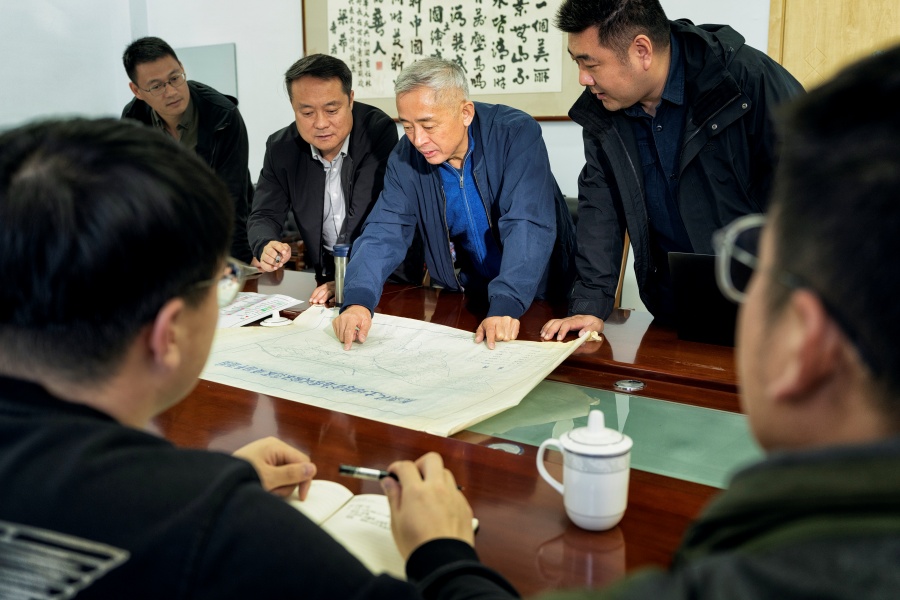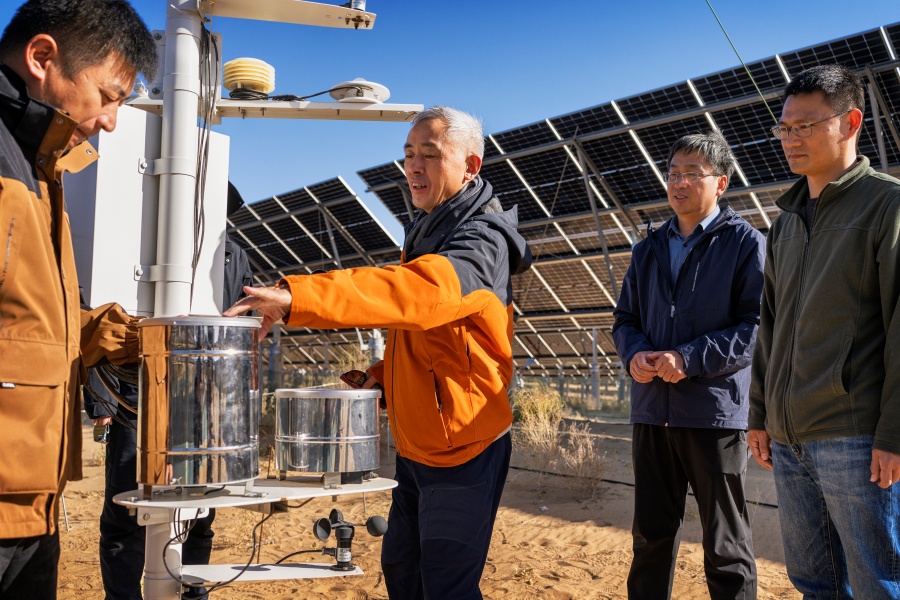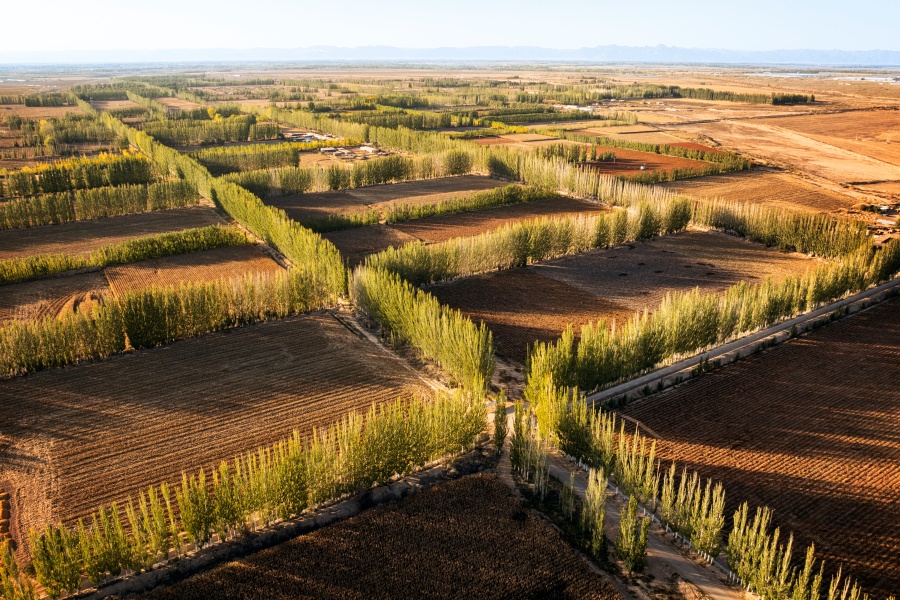
Lu Qi (right) conducts research at the desert forestry experimental center of the Chinese Academy of Forestry Sciences. [Photo by Justin Jin (from UNEP)/For chinadaily.com.cn]
Chinese scientist Lu Qi was announced as the recipient of the Champions of the Earth award by the United Nations Environment Programme on Tuesday.
Lu, chief scientist of the Chinese Academy of Forestry and director of the Institute of Great Green Wall, became the first Chinese person to receive the award in the Science and Innovation category.
Inger Andersen, executive director of the UNEP, highly praised Lu for his contributions to global desertification control. She said that Lu has demonstrated through practice that by combining science and policy, humanity can address land degradation issues, help communities adapt to climate change, and build a better future for millions of people.
"Almost 40 percent of the world's land is already degraded, desertification is on the rise and devastating droughts are becoming more regular. The good news is that solutions already exist today, and around the world, extraordinary individuals and organizations are demonstrating that it is possible to defend and heal our planet," she said.

Lu (center) discusses work with a team. [Photo by Justin Jin (from UNEP)/For chinadaily.com.cn]
Lu is now attending the ongoing 16th Conference of the Parties of the United Nations Convention to Combat Desertification in Riyadh, capital of Saudi Arabia.
As a scientist, Lu has led over 50 desertification control-related research projects, assisting China in implementing the UNCCD and providing expertise to the UNEP, the Global Environment Facility, and other international organizations at the forefront of global desertification action. This has offered best practices for mitigating desertification, land degradation, and drought through multilateral cooperation, according to the National Forestry and Grassland Administration.
"Receiving this honor, I feel the weight of responsibility on my shoulders has increased, and the duty has become stronger. This can inspire the younger generation because as long as they remember their mission and persist in innovation, they will definitely gain recognition from the international community and society. I hope that more young talents will participate in global ecological governance work," Lu said.
Lu participated in discussions on the African Great Green Wall project during COP16 in Riyadh, highlighting its alignment with China's long-standing efforts in sand control and ecological protection.
"We aim to share the successful experiences and models of the Three-North Shelterbelt Project and other ecological projects in China. We already have cooperation centers with Mongolia, Arab countries, and research centers in Central Asia, as well as forums for cooperation with Africa, all aimed at sharing China's wisdom and experiences worldwide," Lu added.

Lu (center) provides guidance at the photovoltaic base of the desert forestry experimental center of the Chinese Academy of Forestry Sciences. [Photo by Justin Jin (from UNEP)/For chinadaily.com.cn]
China initiated the Three-North Shelterbelt Program in 1978, constructing a green Great Wall through afforestation and ecological improvements in 13 northern provinces and regions.
China joined the United Nations Convention to Combat Desertification in 1994 as one of the first signatories.
The Champions of the Earth award is the highest honor in the environmental field awarded by the United Nations to recognize pioneers at the forefront of protecting humanity and the Earth. Since established in 2005, 122 recipients have been honored.
In 2017, the builders of China's Saihanba Forest Farm in North China's Hebei province received the award for Inspiration and Action.

The agroforestry network located within the desert forestry experimental center of the Chinese Academy of Forestry Sciences in the Ulan Buh Desert. [Photo by Justin Jin (from UNEP)/For chinadaily.com.cn]